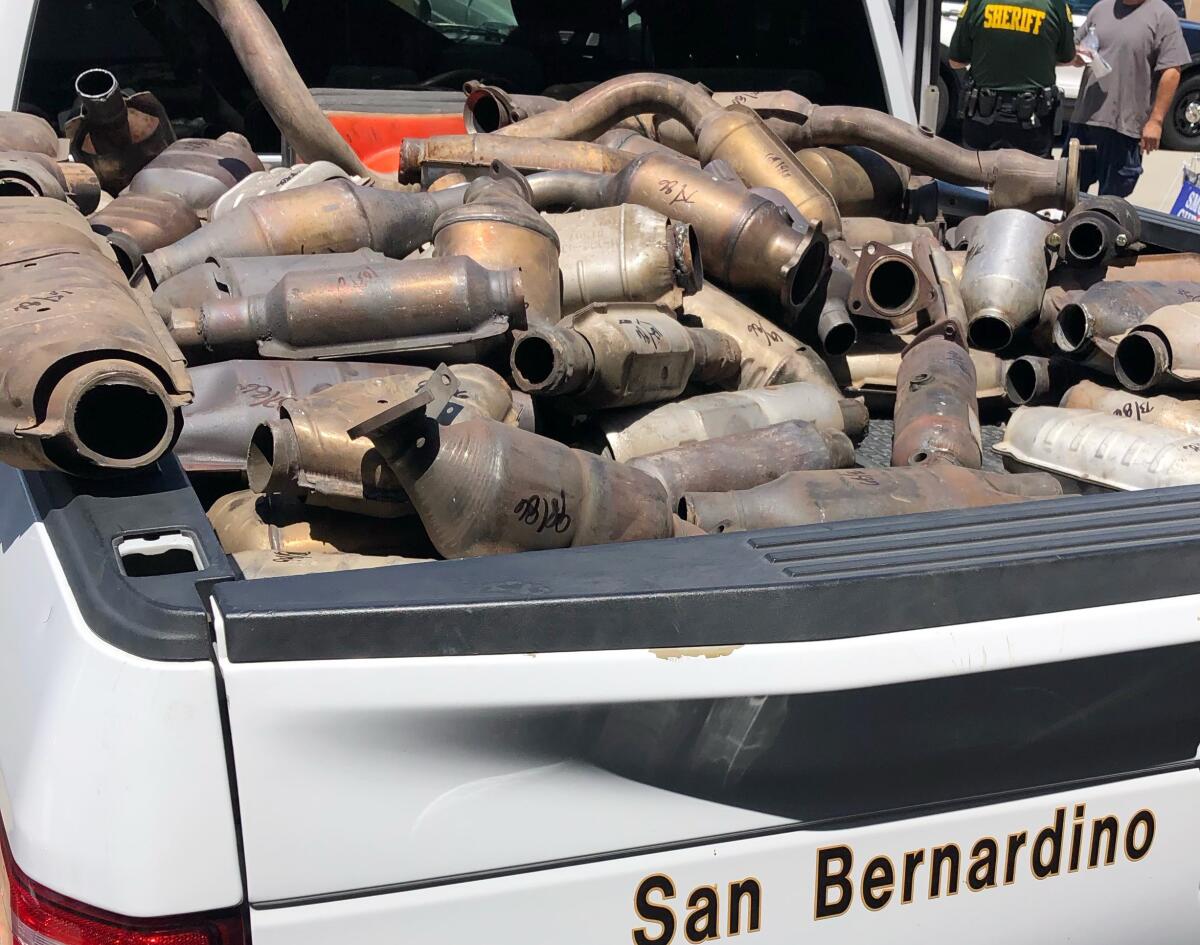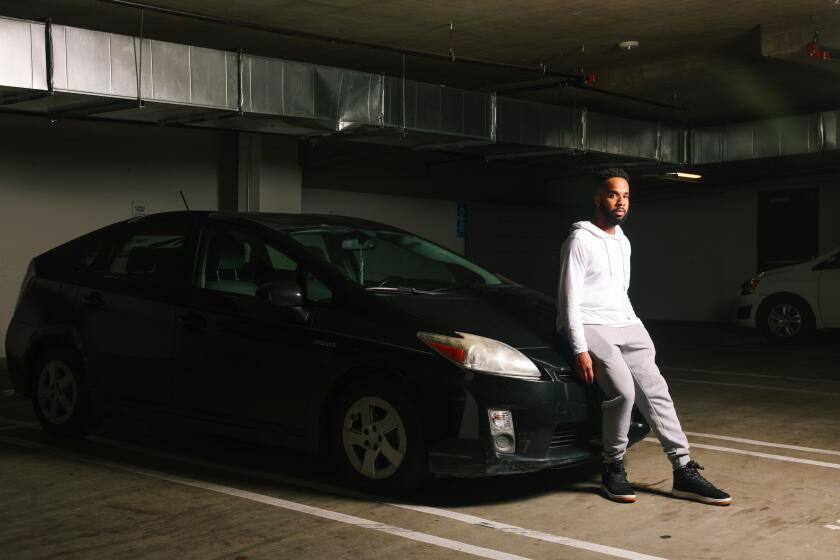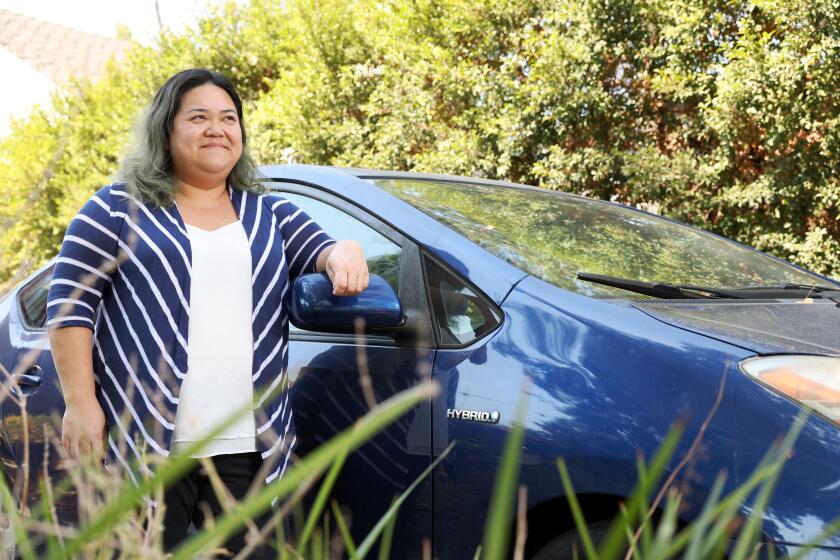L.A. moves to rein in catalytic converter theft, but some question the need for a new law

- Share via
Looking to combat a rash of thefts from Priuses and other cars, the Los Angeles City Council voted Tuesday to make it illegal to possess an unattached catalytic converter without proof of ownership.
On an 8-4 vote, the council approved an ordinance allowing police to arrest anyone who has a catalytic converter that is not connected to a vehicle — and fails to produce a receipt or other identifying information, such as documentation from an auto repair shop, spelling out the ownership.
Councilmember John Lee, who represents the northwest San Fernando Valley, said the new ordinance would give the LAPD a much-needed tool at a time when theft victims are struggling to find replacements for their stolen catalytic converters. The Times recently found that Prius owners frequently wait several months for a replacement part, a situation that frequently leaves them without a working car.
“Everyone who has had a catalytic converter stolen knows that the theft is only one part of it,” Lee said. “Pay for the bill, wait for the part, and then waiting for the repair and really having no idea when you’ll be getting your car back.”
Prius drivers whose catalytic converters have been swiped are experiencing a second indignity: Thousands of owners are ahead of them in line for the same part, and the delays could stretch on for months.
Councilmembers Heather Hutt, Nithya Raman, Marqueece Harris-Dawson and Eunisses Hernandez voted against the measure. Hernandez, who represents part of the Eastside, said there are already multiple laws on the books tackling catalytic converter theft.
Hernandez said the city’s ordinance, which would treat possession of catalytic converters as a misdemeanor, would disproportionately target Black, Latino, Indigenous and low-income residents.
“A criminal conviction and jail time can damage someone’s life forever, leading to collateral consequences like the inability to obtain jobs, rent apartments and get a loan,” she said. “This puts people in a revolving door of desperation and recidivism.”
The city had approximately 8,000 reported catalytic converter thefts last year, up from 972 reported in 2018, according to Lee. Some Prius owners have seen the coveted car part, which is used to control emissions, stolen two, three or even four times.
Hernandez and Councilmember Hugo Soto-Martinez said a better strategy would be for the city to help residents attach cages or other anti-theft devices to their cars to protect their catalytic converters. Harris-Dawson said the ordinance would cause more Black and Latino drivers to be pulled over and questioned by officers about what’s inside their cars.
Punishing people for possessing unattached catalytic converters “doesn’t help anybody,” he said.
“When somebody gets something stolen, the city should be doing everything we can to make sure they’re made whole — not to punish another person,” Harris-Dawson added.
Fifteen years ago, the Toyota Prius was so popular in California that buyers waited for months to purchase one. Now the aging hybrid is in demand again for an entirely different reason: catalytic converter theft.
Soto-Martinez also opposed the ordinance, but left the meeting before the council cast its vote.
The council initially voted in favor of the ordinance last month. Because it was not unanimous, members had to take it up again Tuesday. Eight votes was the minimum needed for approval.
Under the ordinance, each catalytic converter found without proper documentation would qualify as a separate violation. Those who are convicted of violating the ordinance would face up to six months in jail or up to $1,000 in fines.
The measure has drawn support from the Sherman Oaks, Studio City and Westside neighborhood councils. Officials in the LAPD also backed the ordinance, saying it would make it easier for officers to make arrests in cases where they find a car with multiple catalytic converters but haven’t determined where they were stolen.
More to Read
Sign up for Essential California
The most important California stories and recommendations in your inbox every morning.
You may occasionally receive promotional content from the Los Angeles Times.













